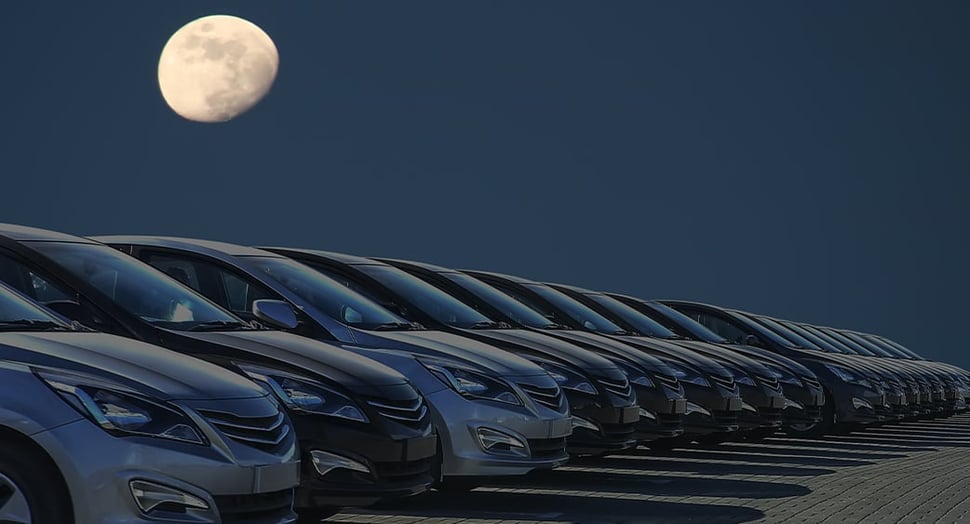 There's growing interest in EV ownership. So what’s changing people’s minds, and what’s holding them back?
There's growing interest in EV ownership. So what’s changing people’s minds, and what’s holding them back?
A Consumer Reports (CR) survey conducted in July and August of 2020 shows that 71% of American consumers are now interested in someday owning an electric vehicle.
In the study, 3,392 drivers in the U.S. were asked questions about their interest level in owning an EV. They were also asked what aspects of owning an EV they do not find appealing, as well as what factors motivate their decisions.
So what’s changing people’s minds, and what’s holding them back?
More people have heard of EVs
One inhibiting factor influencing drivers’ transitions to EVs is that they are not as well known as gas-powered vehicles. For decades, gas-powered vehicles have been “the norm” — we see more commercials for them, we see more of them on the road and there are more manufacturers producing them.
However, EVs are starting to grab more people’s attention. In the CR survey, while only 30% of people reported knowing much about EVs, almost all of them had heard of them.
Clearly EVs are on people’s minds, but they need more information. In many ways, it’s time to start introducing people to the benefits of owning an EV not only for the environment but for drivers, too.
Environmental factors — discussed below — move the needle, of course, but drivers also want style, comfort and convenience in their automobiles.
EVs are being recognized as the cheaper option
While some people may be turned off by the average higher price tag of EVs, what many people are beginning to realize is that the lifetime cost of owning an EV is often cheaper than owning a gas-powered vehicle.
Another CR survey about how much drivers can save by owning an EV illustrates that it is generally cheaper to charge an EV as needed over several years than it is to fill a gas-powered vehicle over the same amount of time. In fact, the report found that over the first seven years of ownership, fuel savings for an EV can be $4,700 or more.
Maintenance costs are often cheaper for EVs as well. The study found that drivers spend about half as much on maintenance and repairs over the lifetime of an EV that they spend on a gas-powered vehicle. This is because EVs do not require frequent fluid changes, and they are mechanically simpler.
People are concerned about the environment
Another reason that drivers are more widely considering transitioning to EVs is growing environmental concerns.
In fact, two-thirds of American adults believe the U.S. government is doing too little to combat climate change, according to a study conducted by the Pew Research Center.
EVs are the eco-friendly alternative to gas-powered vehicles. Consumers seem to be well aware of that, considering 70% of drivers interviewed in the CR survey agree that EVs would benefit the environment by reducing air pollution. These respondents also believe that car manufacturers should offer electric alternatives to their popular models.
Outstanding EV opinions
All of that being said, consumers still have historical reservations about how owning an EV would impact their lives, the main issue being convenience.
Drivers are accustomed to filling their cars at gas stations, and there are far fewer electric charging stations available across the country. Half of CR survey respondents who said that they do not plan on buying an EV claim that lack of charging infrastructure is their primary reason.
What some people don’t realize is that owning an EV means they would more often be charging their vehicle at home. CR reported that an owner of an EV with a 250 mile range or more can do 92% of their charging at home, provided they have a driveway or garage.
However, people who live in apartments will face the challenge of needing to charge their EVs at public charging stations, which can be more difficult to find.
The future of EVs
Consumers are realizing that EVs are ultimately cheaper and that climate change is a significant problem, causing a surge in drivers transitioning to EVs.
With consumer demand increasing, charging EVs will soon become more convenient for drivers.
When this happens, the main concern drivers have about switching to EVs will no longer be an issue. Drivers will be able to begin saving money and the planet without drastically changing their lifestyles.
We want to make owning an electric vehicle as easy and affordable as possible.
Contact us today to learn more about our products and services.

